Student Blog
What are OS/OT?
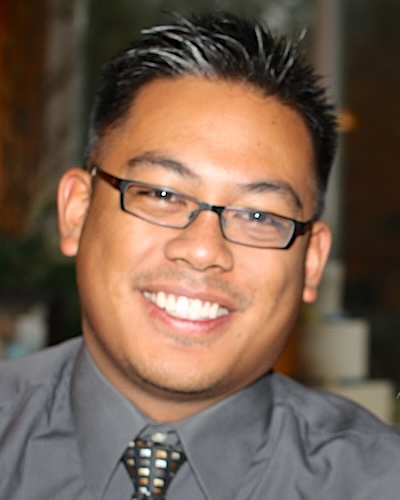
Why Occupational Therapy? ⟩
September 30, 2010, by Pierre
What are OS/OT?
My interest since high school was to help people through rehabilitation. My interests matured from athletic trainer, to psychologist, to physical therapist, and finally to occupational therapist. As you can see I transitioned between body and mind disciplines throughout my educational career, and after much questioning, deliberation, and encouragement, I chose to enter into the field of occupational therapy. My second interest was in the area of pediatrics. Currently, I am doing part-time fieldwork at a unified school district for school-based therapy, and am enjoying it.
As I begin my 2nd year, I realized that I have made the right decision. Let me share why I enjoy learning about occupational therapy and why it was an attractive profession. Occupational therapy is a field that combines the mind and body to allow us to focus not on one part, but on both — the whole person. In a world that is progressing in technology, treatment within occupational therapy may seem simplistic or low tech. Occupations and activities that people do are simplistic in nature because we create daily habits. Dressing up, reading a book, holding a conversation with a friend, riding a bike or driving to work are some things that many individuals carry out automatically without considering its complex or simplistic nature. As occupational therapists we connect with our clients in order to discover what challenges may be in their life currently and what they want to achieve. The challenge lies in how we can help our clients relearn, recover, adapt or create their old or new occupations in their life.
I believe in occupational therapy for its creative practicality. Sometimes we say that a person can, “Make that [action] appear effortless and easy.” Occupational therapy “looks” effortless and easy, but in reality it is continually assessing dynamic changes within the client, gains within treatment, planning future goals, constant adaptation of the environment, etc.
Occupational therapy is about living today in the best way possible.
The only way to do that is to engage in life . . .
Engage in meaningful occupations . . .
Engage to experience your environment . . .
Engage to attain satisfaction . . .
Engage to improve your health.
There’s no better place to study about occupational therapy than here at USC. I chose this institution because of the long history it has had in occupational therapy. It has been the top program in the nation for nearly a decade and has produced many clinical practitioners and occupational scientists that are (and have been) at the forefront of their practice and their research. I chose occupational therapy because I want to be involved alongside the client throughout their process of rehabilitation. I want to be able to provide the opportunities to “get back to living.”
Fight on USC OT!
⋯
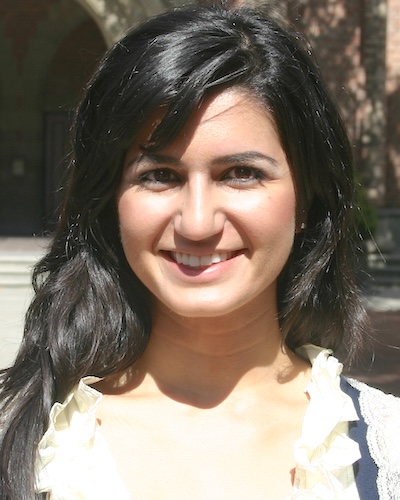
Why did you choose to study OT? ⟩
September 30, 2010, by Helen
Getting Involved What are OS/OT?
Everyone asks, “What made you choose Occupational Therapy?”
Throughout my academic career, I always knew I wanted to work in a helping, health profession. In high school, I did room visits at the local rehabilitation hospital listening to patients, asking about their day, and opening myself up to the patients’ histories, family circumstances, and their concerns for the future. I organized a group called the Musical Bridge to bring a source of music and energy to those rehabilitating. For six years, I organized monthly recitals in the rehabilitation hospital. By adding a source of entertainment to the daily lives of the patients, I felt that I could, in an acute sense, promote their emotional and mental health.
Later in high school, I watched my grandfather slowly lose all independence to his dementia. While watching the persistence of my grandfather’s character despite experiencing such a devastating neurological disorder, I realized the value of resiliency. As a fourteen year old, I knew that I wanted to dedicate my professional future to the field of rehabilitation in some way. I am fascinated by people, their perspectives, and how no two individuals internalize and experience the same circumstance identically. My passion is studying developmental processes and the genetic, social, and socioeconomic factors that intertwine to influence one’s process of growth and attaining independence. Everything I have done up to now has been part of my efforts to help individuals rehabilitate and retain independence in their daily lives.
During my undergraduate studies, I took it upon myself to volunteer at as many rehabilitation settings as possible to determine where my strengths would best be utilized. I volunteered at pediatric clinics, geriatric gyms, rehabilitation hospitals, at an adult day health center, in addition to shadowing therapists in the school district. Through volunteering at these different sites, I realized that Occupational Therapy was a field that truly intertwined everything I loved about the rehabilitation process. Occupational Therapists were able to take the time in learning the client’s past, understanding how their condition affects the present, and set goals that would maximize function for the future. By utilizing the client’s interests to drive therapy, the Occupational Therapists I observed were able to provide motivation when patients were at their weakest points.
My most influential internship was at an adult day center working closely with clients who had been affected by various unpredictable circumstances. There is one gentleman, whom I will call John, who tremendously influenced my drive to pursue Occupational Therapy as a profession. His short term memory and motor skills have been significantly impaired due to anoxia after Cardiac Arrest. I worked with him on the piano, actively watching his progression from not recognizing notes to once again being able to sight-read very simple sheet music. While John may not have recognized me when he saw me every week, and despite him staring at me blankly as I made eye contact with him and asked him if he would “like to play piano today,” he would excitedly follow my lead into the therapy room. As I adjusted his chair, making sure that he could comfortably reach the keys, he sat patiently waiting to be presented with sheet music to play. As our piano session would end and I walked John back to his familiar seat, at his familiar table, I would say “It was nice playing piano with you today” and he would nod his head yes. After ten months of playing the piano with the therapist and me on a weekly basis, John was able to retain significant amounts of motor control, develop his postural balance, his distal control, and increase his visual motor skills. All these developments were possible because the therapist had best understood John’s therapeutic currency — his occupation.
It is an understatement to argue the power of a positive mentality and the outcome of hard work. Every patient I have seen has influenced my own perspective and the way I approach personal issues in my life. Through USC, I have had opportunities working in pediatric occupational therapy, acute inpatient occupational therapy, in the school districts, as well as an international fieldwork experience in Ghana. Additionally, I have been exposed to the value of professional advocacy and health care politics. By having a strong sense of the theory behind practice, intertwined with hands on experience, I become increasingly passionate about the field of Occupational Therapy the more I learn. I do not hope to merely attain a graduate degree, but rather lead an energetic practice and continue personal research in the fields of development and rehabilitation. Occupational Therapy allows me to take a holistic view of each client to assess every client’s strengths and limitations and develop a plan of care which addresses their goals and maximizes function. I have gained that this trust and respect of the client as a person provides the foundation of therapy. Being a vital component of an individual’s process of rehabilitation energizes my pursuit of Occupational Therapy. Whether it is my grandfather or John, as a future Occupational Therapist, I hope to always project the same humility and motivation that I have learned from the clients I have worked with.
⋯
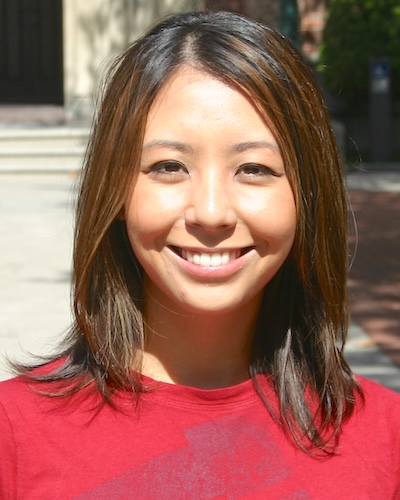
Why Occupational Therapy? ⟩
September 30, 2010, by Carissa
What are OS/OT?
My decision to go in the occupational therapy field didn’t happen overnight. After graduating with a Bachelor’s in psychology without ever hearing one word about occupational therapy, I ended up working as a behavior therapist for children with autism. After two years of working, for the first time, I met an occupational therapist. I remember asking her, “Don’t occupational therapists mainly work with people trying to find a job?” and “What really is occupational therapy?” While I can’t remember her exact response, except that she was amused with my first question, I do remember the impact she made on my client. I observed major progress with one of my clients with severe autism. After working with the occupational therapist, he made rapid, visible progressions in his relations with his peers. She targeted the child’s functional play by helping improve his coordination and limb strength. Initially, during recess, the child refused to be around other kids and preferred to collect tanbark at the side of the playground. However, the more he worked with the OT, the more he ventured out into the playground. During recess one day, he joined his peers playing outside and courageously began to scale the rock wall on the play structure. For the first time, I saw this child taking pride in his own achievement. His other classmates, who were previously afraid of him, also somehow became more accepting of him after this incident.
After this, I was convinced this was a powerful field. It was also a field that could make use of my work experience as well as many of my other interests. With one year of preparations and volunteering occupational therapists at a local hospital, I found myself back in school.
⋯
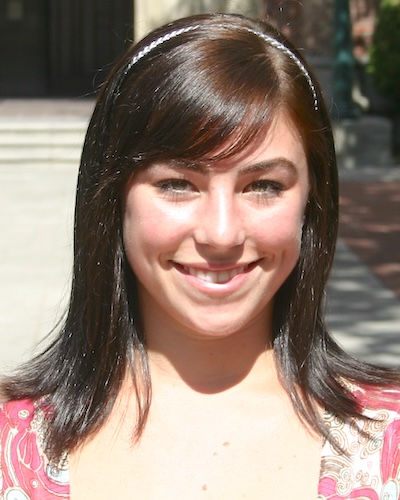
Why I Chose OT ⟩
September 30, 2010, by Austen
What are OS/OT?
My 24-year-old friend Garrett was deployed to Iraq in January 2007 with the United States Marine Corps. Scheduled to come home that August after four tours, his trip was cut short when he stepped on a land mine that immediately detonated. Garrett landed in a ditch and lost his left leg, a sheer miracle that he survived. Due to the severity of his injury, he underwent multiple invasive surgeries, each cutting his left leg shorter and leaving only half of his thigh. After just months of occupational and physical therapy, Garrett recovered incredibly. Today, he uses a prosthetic leg to walk, snowboard, and ride his motorcycle. His therapists helped him maximize his skills and abilities in order to continue to live a satisfying and meaningful life. Watching Garrett’s recovery, hearing his stories, and seeing how gratifying his life is despite his condition inspired me to want to help others on the arduous journey to recovery and progress.
I quickly became interested in health care when I experienced the physical pain and emotional burden of injury. As a gymnast for 9 years, I suffered two severe knee injuries that unfortunately ended my gymnastics career too soon. I had surgery on both my right and left knees, and went through extensive physical therapy to recover. I relied on my physical therapist Leo to help me strengthen my muscles and joints, and learn how to use my environment to regain normal functioning. We established a trusting relationship, and he quickly became my mentor. After going through therapy, shadowing Leo, and volunteering as an office assistant at his physical therapy clinic, I experienced both sides of the patient-therapist interaction. I fell in love with it. It excited me to see how therapists build relationships with clients, make new friends, and learn from everyone they meet, while positively impacting someone else’s life.
I followed this initial fascination with therapy and interned at Therapy Solutions for Kids, a pediatric clinic in Portland, Oregon offering occupational, physical, and speech therapy services for children. As I shadowed an occupational therapist for three months, I caught a glimpse of what the profession entails and realized occupational therapy is more for me with its deeper psychological aspects. It touched my heart to see the young patients eager to “play” with their therapist for an hour, proving the positive influence occupational therapists impart on others. The children and parents usually left with a sigh of relief, knowing they made progress that day. I was able to see myself in the occupational therapist role, working with children and making therapy sessions entertaining, beneficial, and effective for each patient. Witnessing the difference occupational therapists made each day in the lives of children with autism, sensory-motor processing issues, or developmental delays inspired me. Later learning that occupational therapists have the freedom to work in hospitals, schools, long-term care, rehabilitation centers, or private practice with different kinds of people including children, stroke victims, elderly, and the mentally ill solidified my desire to be an occupational therapist.
⋯
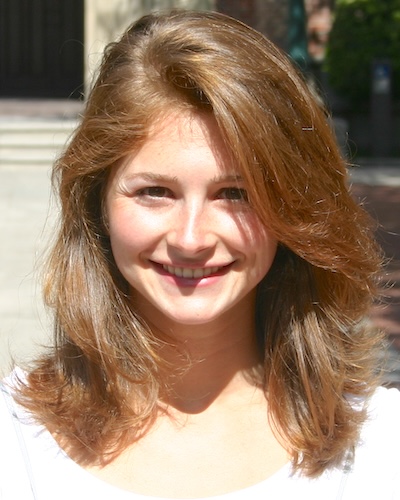
Why Occupational Therapy? ⟩
September 30, 2010, by Amanda
What are OS/OT?
I arrived at the conclusion that occupational therapy was a great career path for me through the “trial and error” method of majors during my undergraduate studies. Although at the time I felt left behind and frustrated as many of my friends were declaring majors in our first year and a half of college, looking back, all the classes I took and self-discovery I went through were worth it as eventually I came out with the right fit.
I actually began my undergraduate career as an architecture major. For various reasons and interests, such as the creativity that architecture entailed, I really saw myself in this profession. However, soon all I could foresee were late nights in studio and desk-based work. I realized pretty quickly that I was looking for a field that would offer a more dynamic work environment and more human interaction! This led me to another side of the academic spectrum: education. Again, I took wonderful classes that fit many of my interests, but I still wasn’t confident that education was totally me. I found through tutoring students that my strengths are in one-on-one interactions rather than a large group setting. I also wanted to assist people in achieving what they wanted, rather than what was on my agenda.
Around this time my mom had seen an article about occupational therapy and told me that this field really reminded her of me. I did my research and found that this career matched what I valued: creativity, continuous and changing challenges, up and moving work, interpersonally based career, and allowing your clients to decide what is important for them to achieve. I loved the idea that this profession is really anything you want it to be. With occupational therapy school as a goal in mind, I choose kinesiology as a major to fulfill many of the prerequisite courses. Kinesiology was a great choice as it set a foundation for understanding how individuals experience their body: biologically, physiologically, sociologically, and psychologically.
Now moving into my second year of the entry-level Masters program at USC, I am more confident than ever that I want to be a professional that has the medical and science background, but strives to see the big picture for each individual I encounter: which is to ensure that clients are able to maintain participation in meaningful occupations. To any prospective students that are trying to figure out how to make themselves a great fit for occupational therapy school, my advice is to be you and continue to do everything that you value, as this is core to what we advocate! In retrospect, all of my above fields of study could still have led me to where I am now. In architecture, my knowledge of the built environment would contribute to an understanding of how individuals are able to participate in occupations. From the education field, the learning process is innate to the occupational therapy profession as well. Whatever you love to do and interests you is essential to your development and path to becoming a great occupational therapist!
⋯





